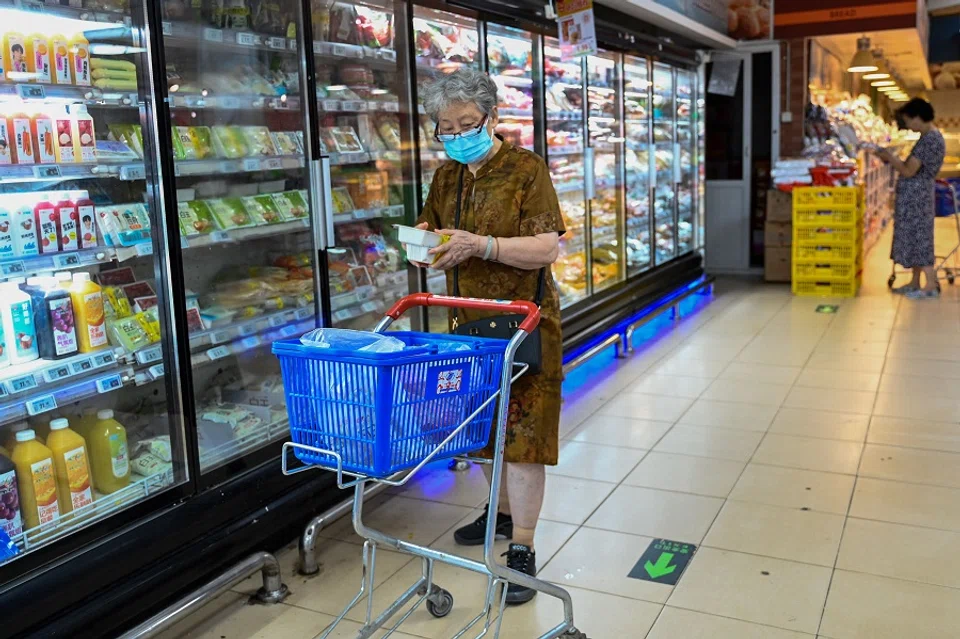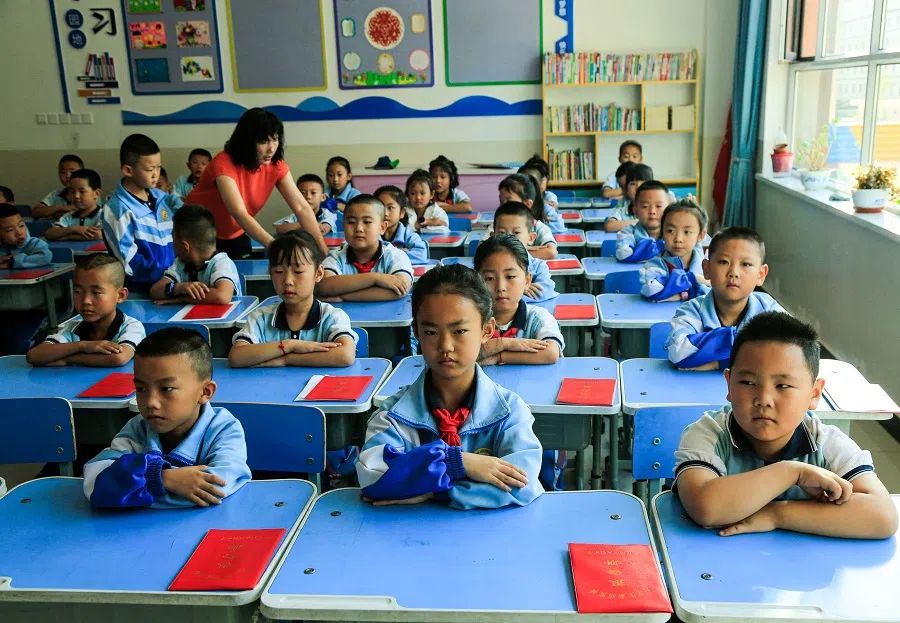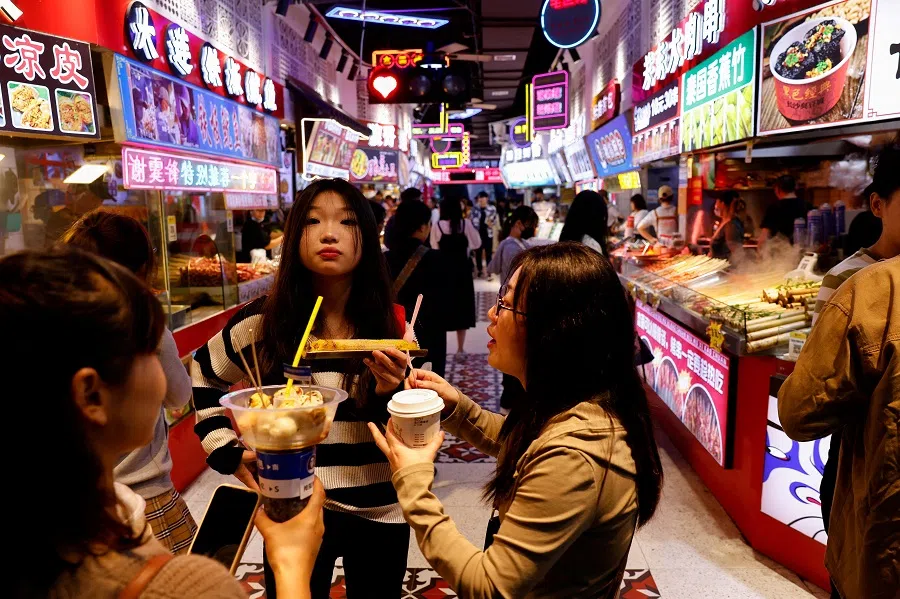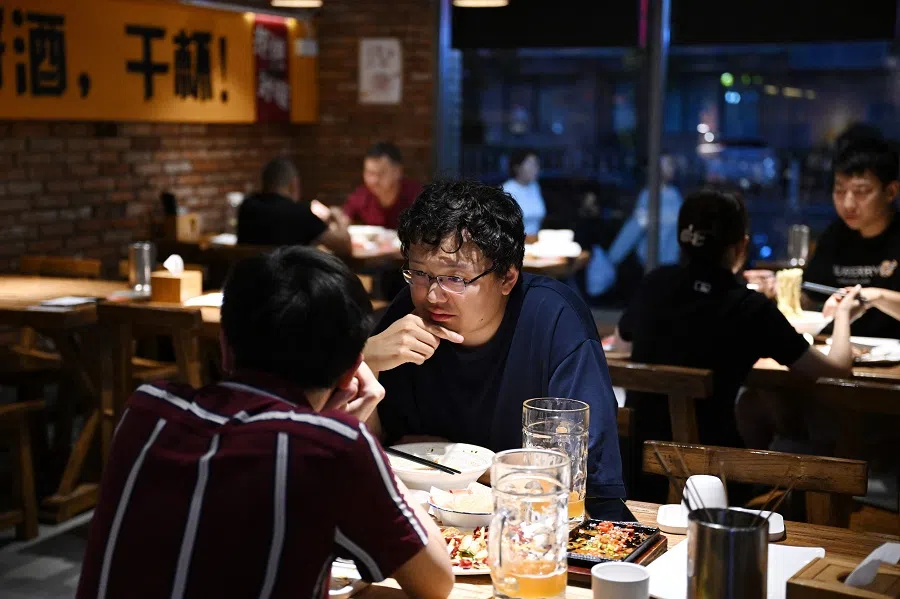Why China's consumers are boycotting pre-made meals in restaurants and school canteens
While China's pre-made meals are quick and convenient for eateries to provide to general consumers, there has been a recent controversy over bringing them into schools. There is also concern over the ingredients used and what goes into the meal. Given the current lack of regulation in pre-made meals, how will the authorities handle the rapidly growing industry?

When I first came to Shanghai three years ago, I was often impressed by the speed of food deliveries here - sometimes, a mere 20 minutes after I set my phone down, a knock on my door lets me know my order has arrived. In Singapore, one-tenth the size of Shanghai, waiting an hour for your food delivery is nothing new.
Later, I realised this is not just because Shanghai has a large fleet of delivery riders, but also because many restaurants can have the food ready almost instantly upon receiving an order; the secret to this is pre-made meals, which only require heating.
The average person's gripe against pre-made meals is mostly because they all taste the same, but this month's debate over whether pre-made meals should be offered in schools has placed this industry that has grown rapidly in recent years in the centre of controversy.
Concerned over the safety and hygiene of pre-made meals and its impact on children's health, some parents have even left their jobs, preferring to prepare food for their children themselves...
Pre-made meals in schools?
In China, since the school term began in September, schools in areas such as Ganzhou, Jiangxi and Shenzhen, Guangzhou have been serving pre-made meals in their school canteens, sparking strong backlash from parents. Concerned over the safety and hygiene of pre-made meals and its impact on children's health, some parents have even left their jobs, preferring to prepare food for their children themselves and deliver it to them.
In light of the controversy and debate, China's education ministry announced last week that in lieu of unified standards, certification, tracking systems and other oversight mechanisms for pre-made meals, caution should be exercised in serving pre-made meals in schools, and it may not be suitable to promote them to schools.

The official position has for the moment allayed the controversy over "pre-made meals in schools", but it has led many to realise that from fast food chains to high-class hotels, from breakfast places to barbecue stores, pre-made meals are ubiquitous. A netizen even shared how to tell them apart - meals that cannot have their spiciness level adjusted, that cannot have scallion, ginger or garlic removed, as well as food that is dark-coloured or reddish with dry vegetables - are all pre-made meals.
Value for money
It is not just parents who are upset with pre-made meals. Many diners feel that they go to restaurants to get freshly-cooked food, and if even restaurants use pre-made meals, what right do they have to charge such high prices? Others are concerned that the proliferation of pre-made meals would lead to chefs losing their jobs, which would cause a crisis for the passing down of Chinese food heritage.
... China's pre-made meals market will break the 1 trillion RMB (US$136 billion) mark in 2026...
According to the collective standards for pre-made meals released in 2022 by the China Cuisine Association, pre-made meals include "instant" foods such as luncheon meat, flash-frozen dumplings, "ready-to-eat" foods that require simple preparation such as braised pork with preserved mustard greens, and "ready-to-cook" foods such as pre-washed vegetables and meats packed by portion size. As the centralised kitchen of restaurant chains would prepare all meals before delivering them to each individual outlet, those are also considered pre-made meals.
Pre-made meals are the new darling of the food industry, as they can be procured collectively, and produced in batches, with standard ingredients and effective cost control, among other advantages. Statistics from iiMedia Research show that China's pre-made meals market will break the 1 trillion RMB (US$136 billion) mark in 2026 - currently, there are more than 60,000 companies in China's pre-made food industry, ranging from established names to newcomers.
Food safety concerns
Chinese media revealed last week that Zhang Hezi, who oversaw a slew of Covid testing laboratories across various Chinese regions during the pandemic, has established a new company and entered the pre-made meals market. Now that even someone from the Covid testing market wants a share of the pie, the public is even more concerned about how much more messy the market will get.
... China's food safety standards are in fact "the most stringent in the world"; most restaurants and school canteens are not even allowed to make dumplings fresh...

In fact, parents' and diners' concerns about pre-made meals, such as the lack of freshness and unhygienic production processes, are also applicable to canteens and restaurants in general. From the melamine-tainted milk 15 years ago to the alleged rat head (claimed to be a duck's neck) found in a student's meal this year, food safety has been a major concern in China, and continues to create serious crises of confidence. Even the government-distributed food packages supplied during Shanghai's lockdown last year were found to contain substandard pork products and oil, making it even more difficult for the public to feel at ease.
On the other hand, some restaurant operators have revealed that China's food safety standards are in fact "the most stringent in the world"; most restaurants and school canteens are not even allowed to make dumplings fresh, so that operators have to use frozen dumplings. "Just wait till the regulators check up on you a few more times, then you'll find that pre-cooked meals taste good."
While the overly stringent standards mean that most restaurant operators are tired of dealing with formal inspections, longstanding collusive practices have allowed a handful of operators to blatantly violate the law, so that "one bad apple spoils the bunch". Netizens accurately summarised this as "high standards in drafting the law, generalised breaking of the law, and selective enforcement of the law".
The only difference in the case of pre-made meals is that there is not yet a mature mechanism for the production, certification and regulation of this emerging industry...

The bottom line is that like many other social problems in China, the public anxiety and anger over pre-made meals is the result of a crisis of credibility due to inconsistent standards, inadequate regulation and a lack of transparency. The only difference in the case of pre-made meals is that there is not yet a mature mechanism for the production, certification and regulation of this emerging industry, allowing errant businessmen to exploit loopholes. And with a lack of information and trust, the general population would rather boycott pre-made meals than take risks.
Future action by authorities
Pre-cooked meals are common in developed economies such as the US and Japan; in Singapore, where there is a shortage of manpower, the government is even encouraging caterers to utilise centralised kitchens to increase productivity. When I covered manpower news in Singapore a few years ago, I occasionally heard restaurant owners sharing how they were able to standardise quality control and enhance efficiency through prefabrication.
As China's demographic dividend diminishes, the popularisation of pre-cooked meals is inevitable. Instead of an across-the-board ban, China could take this opportunity to regulate the development of this new industry, such as defining pre-made meals, ensuring the safety and hygiene of these meals, deciding whether restaurants should label the use of pre-made food, as well as its pricing.
This intense debate has brought pre-cooked meals out of restaurant kitchens and into the public eye. Bringing pre-made food into households and making it more acceptable to the public would be a small yet important part in the future economic and social transformation process of this massive market.
This article was first published in Lianhe Zaobao as "热锅上的预制菜".




![[Big read] When the Arctic opens, what happens to Singapore?](https://cassette.sphdigital.com.sg/image/thinkchina/da65edebca34645c711c55e83e9877109b3c53847ebb1305573974651df1d13a)
